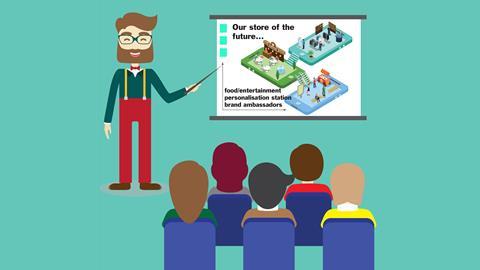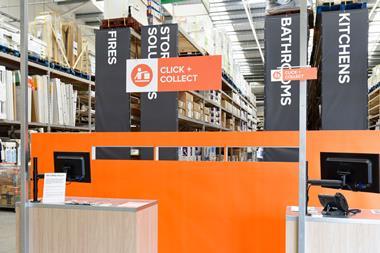As shopping habits and consumer expectations change, Aptos asks retailers how they are planning for the store of the future.
In a recent Twitter poll aimed at British, French and Italian retailers, Aptos found that upskilling store associates was the primary in-store investment priority for the next three years across all three countries, taking an average 38% of the overall vote – standing out against other strong contenders.
This finding demonstrates the widespread acknowledgement from retailers that stores need staff that are capable of more than simply making transactions or assisting on the shop floor.
“A store’s appeal in today’s retail landscape is in face-to-face interaction as this cannot be replicated on screen”
Other options in the survey only reinforce how important upskilling staff is for retailers, as they look to add food and entertainment options, as well as more personalised experiences for shoppers.
In stores, it is the staff who are tasked with delivering these new experiences, which requires new skills to do so in a way that is engaging.
A store’s appeal in today’s retail landscape is in face-to-face interaction as this cannot be replicated on screen. Therefore, upskilling staff is vital for making a shopping experience special.
Tech training
One significant way in which store associates should be trained for the future is through the use of technology.
Frontline staff should not only be able to provide information about the products on display within the specific store, but also have access to omnichannel services.
The store associate of the future should be able to order products on the spot for a customer – either ordering online for delivery to their home or store, or finding the product to pick up from a different store nearby.
At the point of sale, assistants should also be able to seamlessly make any transaction, including returns, establishing a reputation for frictionless customer journeys in-store.
Luggage retailer Tumi equips all staff with the ability to take returns of goods purchased from any location, including department stores. By connecting the points of sale across its retail ecosystem, and ensuring staff are fully trained on all technology, transactions are made easily, which helps to build loyalty to the brand.
Creating an experience
Store associates are a key component of the omnichannel experience, offering end-to-end customer service whether the product was bought online or in-store.
Arming them with the right technology and the training to use this will help, but retailers also need to develop the soft skills of staff, improving their sales technique and understanding of customers’ needs.
Health and beauty retailer Lush has honed this to a fine art. Store assistants are mobile points of sale, using tablets to access product information and make transactions, leaving them free to interact with customers.
“Retailers also need to develop the soft skills of staff, improving their sales technique and understanding of customers’ needs”
Lush trains its staff extensively on everything from dermatology to sales techniques to offer an expert experience.
By breaking down the types of customer profiles staff are likely to encounter, and equipping them with the training and tools to tailor their sales approach accordingly, retailers can ensure a more enjoyable experience for their customers.
Store associates with the right attitude and the right technology are integral to the creation of a desirable in-store experience – which is why retailers in Britain, Italy and France alike view upskilling as the top priority for the next three years.






























No comments yet